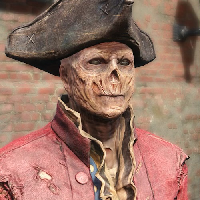Lyney MBTI 성격 유형
인격
"Lyney은 어떤 성격 유형입니까? Lyney은 mbti의 ENTP 성격 유형입니다. enneagram의 3w2 - so/sx - 739, big 5의 SCOAI, socionics의 ILE입니다."
[1/6] <--- another ENTP argument done by a friend of mine that includes a ti-fe explanation can be found here: https://www.personality-database.com/comment/8668978?profileID=202470 ---> this is simply going to be an argument for why lyney is absolutely ne > ni, mainly because i'm beyond fed up with how this site treats ne & misunderstands + misrepresents it. there's a MASSIVE misconception that ne is essentially nothing more than an "ideas" function which... isn't true in the slightest if you bother to put some basic rudimentary thought into it. equating an entire function solely to the concept of "how many ideas can they come up with" is legitimately one of the worst takes PDB has come up with (right up there with "ni is future planning" & "si is when thinking about the past" & "fi is when having strong emotions omg!!!") & it really needs to stop. the first, & most important, thing to realize & remember about ne is that it's NOT about ideas - it's about POTENTIAL. when jung himself talks about ne & describes it, he never actually uses the word "ideas"; he talks about an expectation of potential in the external world that comes ridiculously close to the experiences that se craves. jung himself literally states that ne comes EXTREMELY close to se, & many ne users can often mistake themselves for se users because of how similar these two functions can externally present. 🝔 "The intuitive function is represented in consciousness by an attitude of expectancy, by vision and penetration; but only from the subsequent result can it be established how much of what was “seen” was actually in the object, and how much was “read into” it. Just as sensation, when it is the dominant function, is not a mere reactive process of no further significance for the object, but an activity that seizes and shapes its object, so intuition is not mere perception, or vision, but an active, creative process that puts into the object just as much as it takes out. Since it does this unconsciously, it also has an unconscious effect on the object." 🝔 "Just as extraverted sensation strives to reach the highest pitch of actuality, because this alone can give the appearance of a full life, so intuition tries to apprehend the widest range of possibilities, since only through envisioning possibilities is intuition fully satisfied. It seeks to discover what possibilities the objective situation holds in store; hence, as a subordinate function (i.e., when not in the position of priority), it is the auxiliary that automatically comes into play when no other function can find a way out of a hopelessly blocked situation. When it is the dominant function, every ordinary situation in life seems like a locked room which intuition has to open. It is constantly seeking fresh outlets and new possibilities in external life. In a very short time every existing situation becomes a prison for the intuitive, a chain that has to be broken." 🝔 "For a time objects appear to have an exaggerated value, if they should serve to bring about a solution, a deliverance, or lead to the discovery of a new possibility. Yet no sooner have they served their purpose as stepping-stones or bridges than they lose their value altogether and are discarded as burdensome appendages. Facts are acknowledged only if they open new possibilities of advancing beyond them and delivering the individual from their power. Nascent possibilities are compelling motives from which intuition cannot escape and to which all else must be sacrificed." ne has a fundamental focus on ascertaining the potentials around them, in their external environment. another misconception related to this is the notion & understanding of the word "possibility"; it's typically used quite synonymously with the concept of "ideas", even though they are not actually the same thing. a person can be open to the possibilities (i.e. potentials) of what is occurring without actively coming up with ideas of what those are, because coming up with ideas involves active brainstorming & construction of possible events. hence, ne is fundamentally an openness to the many different ways that things could potentially go. & this is where the ne vs se confusion begins to arise. ne is looking for the highest potential, just as se is looking for the highest concrete experience - & when viewing these externally, they can look shockingly similar. ne prefers to openly view the potentials that can arise, but then it actively looks to select which will bring about the best potential & then FOLLOWS IT. they WANT to experience the end result of that selected potential, otherwise how can they ever know what will come from it? how can they ever open that door & go through it if they aren't actively experiencing what comes from it?
전기
Lyney is a playable Pneuma-aligned Pyro character in Genshin Impact. A famed Fontainian magician who possesses great stage presence, as well as gift of the gab. Audiences are enthralled by his exquisite skills, and they hang on to his every clever word.
인격 correlate

Venti

Wanderer / Scaramouche

Furina

Kaedehara Kazuha

Yae Miko

Neuvillette (Chief Justice of Fontaine)

Fischl

Arlecchino















